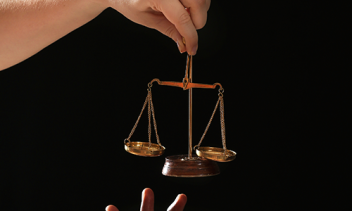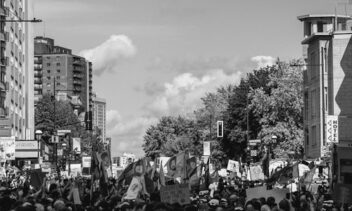There is a growing debate within Jewish circles about the term “Tikkun Olam” – meaning to fix or change the world. Some Jews place this at the center of our nation’s mission. The mission of the Jewish people, according to this approach, is to stand with the oppressed and bring societal change and redemption to the entire world. Others, however, have criticized this approach. Some feel that the notion that Tikkun Olam stands at the center of Judaism has warped the focus of Judaism as a religious movement and makes it more into a political movement.
This bibliography is far from exhaustive, and we prefer to think of it as an invitation for further exploration rather than a checklist for your intellectual journey. Here are some of our favorite articles that we found illuminating, and we hope you find illumination here as well. We include articles and our book recommendations, along with the books recommended by our guests this month: Rabbi Dr. Jeremy Wieder, Dr. Rivka Press-Schwartz, and Eli Rubin. We hope you enjoy, and begin this journey of learning with us.
Appetizer: What is Tikkun Olam?
Whet your appetite with this big picture issue to get you started.
Tikkun Olam has been a theme throughout Jewish engagement in social justice and it has a long and deeply textured history. As a foundational idea of social justice, its meaning has been widely debated. Start with Gilbert S. Rosenthal’s “Tikkun ha‐Olam: The Metamorphosis of a Concept,” a quick read that walks you through Tikkun Olam from the Bible to the Talmud, a necessary introduction to engaging with its contemporary manifestations. Rosenthal aims his umbrage at Gerald S. Blidstein’s understanding of Tikkun Olam. Blidstein, in a lengthy (read: too lengthy) yet creatively titled article “Tikkun Olam” (read: sarcasm), questions the “Jewish responsibility for humanity.” Levi Cooper, in his piece, “The Assimilation of Tikkun Olam,” provides an updated history of Tikkun Olam, exploring how this term became a central term to American Judaism.
Entree: Judaism and Social Justice
Here’s your meal; we hope you enjoy.
Jerome S. Legge, Jr.’s “Understanding American Judaism: Revisiting the Concept of “Social Justice” is a fascinating, if dated, look at what Jews believe about social justice. This data-driven study (we permit you to skip the multiple regression analysis) considers the ways engagement with social justice manifests as deepened concern with members of one’s own community or broader communities.
More broadly, what are some signposts to where our community can look for growth in our appreciation for social justice? Our guests this month had several suggestions.
Rabbi Jeremy Wieder’s emotional, text-driven response after the tragic death of Eric Garner, “Sensitivity to the World Around Us” is a window into one attitude that constitutes a meaningful engagement with social justice. Pair it with his missive on political engagement, “A Stranger and Resident I Am Among You,” where he drops the following delightful observation: “I can readily understand why a Torah Jew might choose to vote Democrat and why a Torah Jew might choose to vote Republican. But I do have concerns about a Torah Jew perceiving his or her core identity as either a Democrat or Republican.” For a similar trans-political perspective, check out this article from Tzvi Freeman, at Chabad.org, on the topic of “Is Judaism Socialist or Capitalist?” While not strictly about social justice, this important article offers a perspective on the relationship between all political systems and Judaism.
In her 2010 article “Privilege, Perspective, and Modern Orthodox Youth,” Dr. Press Schwartz advocates for a deeper historical appreciation of our roots, the roots of our success (or privilege) in this country, and the history of people of color in the United States.
Drinks: Just For Fun
Less scholarly than our other offerings, these readings are (usually) friendlier for couches and reading while on line at the grocery store.
Any discussion of Jewish social justice values needs to consider the Civil Rights era. For some, this era is demonstrative both to liberal Judaism’s commitment to fighting for a more actively equal world, and to the failures of Orthodoxy to engage meaningfully in social justice work. For others, this parallel is outdated, as the American Jewish community of today is in a profoundly different place than it was 80 years ago. Lora Rabin Dagi wrote her (hefty) undergraduate thesis, at Harvard, on the topic of “Justice, Justice, Shall You Pursue: Orthodox Jewry and the Civil Rights Movement, 1954-1970.” Her fascinating treatment of this complicated time period provides a window into many of the antecedents to the engagement in social justice we see today. And if you are scared of the length, we’ve got you covered – in his Kavvanah Blog, Alan Brill provides some of his favorite parts of this lengthy dissertation, which we included below.
If Jewish sources are your game, Rabbi Dr. Tzvi Sinensky put together quite a tasty menu of his own on the topic of “Jews and the Civil Rights Movement” on Sefaria, replete with salty Sifras and savory Netzivs. For more, listen to Rabbi Saul Berman – one of the few Orthodox rabbis that marched in Selma – talk about the lessons he thinks contemporary Jews should be learning from Selma in his lecture on “Lessons from Selma 1965 for American Jews 2020.” Read up. Listen up. Learn up. Level up. We all have a lot to learn.
Dessert: Our Book List
For those willing to go the extra mile beyond PDFs, we recommend these books for further reading. We are proud to have had profoundly thoughtful guests to discuss these questions. Here are some of the books they recommended we read. We also included some book recommendations on our site – feel free to check those out for more information.
Rabbi Dr. Jeremy Wieder, while holding back from a full recommendation, has found There Shall be No Needy: Pursuing Social Justice Through Jewish Law & Tradition, by Rabbi Jill Jacobs, to be a helpful referent. In his words:
She grapples very honestly with the limitations, because the tikkun olam agenda, it’s not a focus topic in traditional, in Chazal, in traditional Halakhah. It’s a little piece here, a little piece there, and many of the issues, for example, criminal justice reform, there isn’t, in the penal system, you can pull out a Halakhah here a Halakhah there, but there isn’t so much to push. Or if you talk about another very important topic, which does play into issues of economics and poverty, is environmentalism. I believe very strongly in our responsibility but environmentalism is a very difficult topic to deal with in Halakhah, the sources are very, very limited for reasons I’m not going to go into now. So the shortcoming of the work, which is not her fault, is that there really isn’t so much, it requires a few sources and it requires a certain kind of ability, I would say, to construct and to push in the non-halakhic arena.
Dr. Rivka Press Schwartz recommends the following books: Yuval Levin’s op-ed on why we need to work on a societal level to rebuild our social institutions, to bring change. Check out his book on the topic as well: A Time to Build: From Family and Community to Congress and the Campus, How Recommitting to Our Institutions Can Revive the American Dream. She also recommends Richard Rothstein’s The Color of Law: A Forgotten History of How Our Government Segregated America. Here are her words about this book:
I’m going to recommend the book The Color of Law by Richard Rothstein, which was published pretty recently, maybe 2017. He’s not an academic. He works in a policy place, a policy shop, he’s not an academic. It’s really pretty readable. And it’s about housing segregation in America. And I think when we realize that the way our neighborhoods and our communities look is not just because black people chose to live here and white people chose to live there, but because actual government policy segregated our neighborhoods, then we start to realize that maybe this wasn’t just about making people sit at the back of the bus. And then we stopped making people sit, Rosa Parks, then we stopped making people sit at the back of the bus and it’s all fixed, right? Isn’t it? But that there are in fact ongoing and pervasive problems, the impact of which is still being felt today. It’s not exactly a beach read. I’m sorry.
Eli Rubin recommends Naftali Loewenthal’s Hasidism Beyond Modernity: Essays in Habad Thought and History. Here’s why:
So I would recommend Hasidism Beyond Modernity: Essays in Habad Thought and History, by Naftali Loewenthal. Naftali Loewenthal is a teacher of mine. He’s a great scholar of Hasidism. He’s a great Hasid in his own right. And this book is a compilation and a redoing of some of his most important articles, but when they’re all brought together, and with the new pieces that he’s added to it and updating, it really creates a kind of schematic view of Chabad thought and history, from beginning to end, with an emphasis on bringing together opposites, how Chabad so often brings together the rational and the mystical, the universal and the particular, modernity and tradition, the past and the future. And that’s reflected in the title, Hasidism Beyond Modernity. This is something that carries through beyond the present moment. There’s a very futuristic dimension to Hasidism, a vision for an ideal that has not yet been reached. So it’s really a great book. And I think it, in a way, complements the work that we did in Social Vision, and also has a very kind of personal dimension to it, as well. His introduction is a memoir of his own journey, as a scholar and as a Hasid. So it’s a really powerful and important book.








